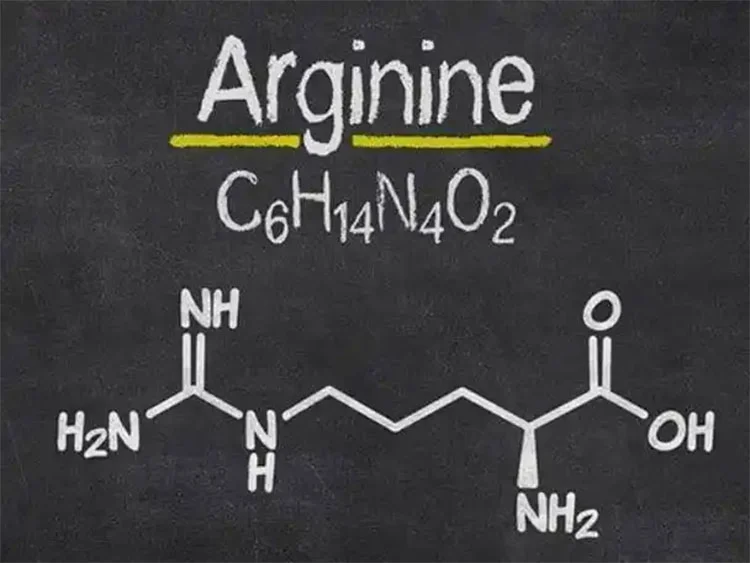Is L-arginine safe for kidneys?
The semi-essential amino acid L-arginine participates crucially in protein synthesis functions as well as delivers immune assistance while facilitating nitric oxide production. People use L-arginine as a food ingredient which enhances heart health and strengthens physical performance together with general body health. The supplement produces uncertain effects regarding kidney health especially when used by people who have existing kidney problems.

The Role of L-Arginine in the Body
Multiple biological functions exist for the substance L-arginine which include:
The production of nitrogen oxide begins with L-arginine which leads to dilated blood vessels for better circulation.
The combination of L-arginine supports both immune system operation and the healing of wounds.
L-arginine improves protein metabolic functions that support muscle development.
Detoxification becomes more efficient when L-arginine helps eliminate ammonia substances from the body. L-arginine appears regularly in supplements as it delivers health benefits for heart functioning and athletic performance as well as supporting metabolic operation.
How does L-arginine affect Kidney Function?
1. Nitric Oxide and Kidney Circulation
The creation of nitric oxide (NO) depends on L-arginine participation which leads to blood vessel relaxation and enlargement. Proper circulation plays an essential role in maintaining kidney health because it helps the filtering process alongside electrolyte management. L-arginine demonstrates the potential to enhance kidney blood flow in people who possess normal kidney function thus promoting their renal functionality.
2. Protein Metabolism and Kidney Load
Due to its amino acid structure, L-Arginine aids the metabolic breakdown of proteins. People with renal issues need to notice their protein consumption when their kidneys need to handle an increased workload because of high protein consumption. Unless they have kidney disease patients should feel confident about taking moderate L-Arginine supplements without causing harm but renal patients require careful monitoring of both protein and amino acid amounts.
3. Ammonia Detoxification
Through the process of protein metabolism, the kidneys function to remove ammonia. The urea cycle is facilitated by L-arginine the transformation of ammonia into urea for elimination through the body. The efficient operation of this system exists in healthy individuals. People with impaired kidney functions struggle to eliminate waste products thus their blood numbers build up nitrogenous compounds.
Potential Benefits of L-Arginine for Kidney Health
1. Supports Blood Flow and Circulation
The production of nitric oxide which L-Arginine promotes enables better renal blood circulation because it leads to optimal kidney functioning. Through proper circulation, kidneys acquire essential nutrients and sufficient oxygen and perform their function of waste product elimination from the blood.
2. The compound tends to regulate blood pressure readings.
High blood pressure acts as a significant cause that leads to kidney disease development. As L-arginine enhances blood vessel expansion it aids blood pressure control that lessens kidney stress.
3. Potential Support for Kidney Disorders
Researchers have discovered evidence showing that kidney disease patients during early stages might benefit from L-Arginine supplementation because it enhances circulation efficiency and endothelial health. Scientists require additional research to validate these results.
Risks and Considerations of L-Arginine for Kidney Health
1. Possible Overload in Kidney Disease
People who have progressed kidney disease and renal failure might experience negative nitrogen effects from taking high amounts of L-arginine supplements. Patients with renal impairment need to check with their doctors to determine safety regarding L-Arginine supplement usage.
2. Interaction with Medications
Patients who use L-arginine supplements need to be careful because it interacts negatively with medications used to control blood pressure and kidney disease along with cardiovascular medications. Medical consultation should be the first step to start supplementation including all patients taking prescription medicine.
3. Potential for Electrolyte Imbalance
People with kidney impairments should be cautious about L-arginine supplements because this compound controls nitric oxide production and circulation which affects electrolyte levels in the body. People dealing with kidney conditions need frequent checks of their sodium and potassium levels.
Recommended Dosage and Safe Use
The dosage of L-Arginine needs customization based on what status a person has regarding their health and what their goals are. General recommendations include:
For general health support: 2-6 grams per day.
Daily amounts of cardiovascular health benefit from 6-9 grams of L-Arginine while distributed over multiple doses.
Before deciding to supplement with L-Arginine individuals who have kidney issues need medical approval from their healthcare provider. Improved safety occurs when medical patients take L-Arginine while staying well-hydrated with proper diet control.
Who Should Avoid L-arginine?
The generic supplement L-arginine maintains safety for healthy people yet it presents risks for specific groups consisting of these three categories:
Those with advanced kidney disease or renal failure.
People who receive treatment for high blood pressure or kidney diseases need to avoid L-arginine supplementation.
Those with metabolic disorders need special care when determining their protein consumption level.
Is L-arginine safe for kidneys?
People taking L-arginine receive various kidney health advantages from its impact on circulation and blood pressure together with nitric oxide production. L-arginine supplementation retains safety levels when applied according to medical guidelines but specifically needs special caution for patients who have kidney disease. People may obtain benefits from moderate L-Arginine intake to boost kidney health but overuse or uncontrolled consumption presents potential dangers for the organ. Outcome assessment from a healthcare provider regarding L-arginine intake remains crucial, particularly for patients who currently have kidney issues. People who use L-Arginine sensibly together with a proper diet achieve optimal health without exposing themselves to unnecessary hazards.
If you're looking to buy L-arginine hydrochloride, look no further than us! We are a trusted supplier with a commitment to quality and customer satisfaction. Contact us today to learn more about our products and pricing. You can send an email to info@scigroundbio.com or submit your requirements using the form at the bottom of our website.